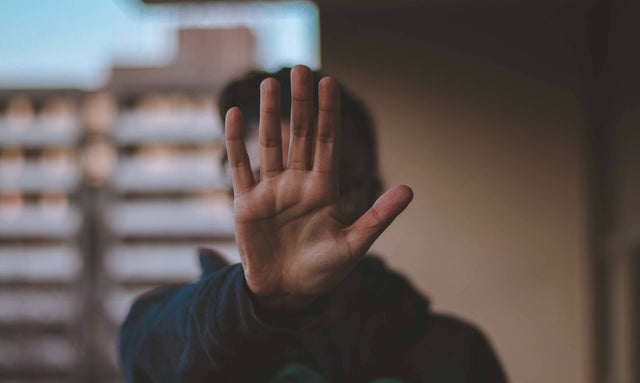WHAT HAPPENS WHEN YOU STOP TAKING CBD OIL?
The integration of CBD products, such as CBD oils and topicals, into our daily routines has been embraced by numerous individuals, largely due to the host of health benefits these products can offer.
From promoting relaxation to supporting overall wellness, CBD has captured the attention of wellness enthusiasts worldwide. However, a question that might arise for many is, "What happens when I stop using CBD?" Understanding CBD withdrawal, its potential for addiction, and the facts concerning side effects of CBD oil is essential for a well-rounded view.
Is CBD Addictive?
The question of CBD's addictive potential is a common and understandable concern. However, the worry about addiction is largely misplaced when it comes to CBD. Unlike THC, the psychoactive compound found in cannabis, CBD does not have any psychotropic effects that could lead to dependency. This is affirmed by a study in the Journal of Drug and Alcohol Dependence, which underscores that CBD does not have abuse potential and doesn't have adverse effects on human health1.
In fact, CBD has been seen as a potential substance to mitigate the effects of substance addiction. Preclinical studies suggest that CBD might have therapeutic properties on opioid, cocaine, and psychostimulant addiction, with more research being carried out to understand this better.
Does CBD Have Withdrawal Symptoms?
When discussing CBD withdrawal, it's important to clarify what this term means in the context of CBD use. If you decide to stop consuming CBD, you might notice the absence of the positive effects that you've been experiencing. However, this doesn't mean you'll face withdrawal symptoms.
CBD's mild and non-invasive interaction with the body ensures that any alterations you experience post-discontinuation will be manageable and not a cause for alarm. The World Health Organisation (WHO) has emphasised that CBD is generally well-tolerated, with a good safety profile2. It has further added that there's no evidence of public health-related problems associated with the use of CBD.
CBD Oil Side Effects and Their Impact
While discussing CBD withdrawal, it's equally important to consider the potential side effects of CBD oil. CBD, in general, is considered safe with a low risk of side effects. That being said, every individual may react differently to CBD. Any potential side effects, including a potential impact on the liver, are generally mild and exceedingly rare.
The most common side effects reported by users are often non-serious and temporary. They can include dry mouth, lowered blood pressure, light-headedness, and drowsiness. However, these side effects are often associated with significantly higher doses of CBD that those found in our products.
It's always recommended to consult with your healthcare provider, especially if you are concurrently taking other medications, to ensure your safety and minimize any potential risks.
How Long Does CBD Withdrawal Last?
Addressing the question of how long CBD withdrawal lasts requires understanding that CBD doesn't really have a 'withdrawal' phase, as you would experience with substances that cause dependence. Since CBD does not lead to addiction, the concept of 'withdrawal' becomes practically non-existent.
However, everyone's body is different, and the timeframe for your body to fully adjust after stopping CBD might vary. It's always a good idea to consult with a healthcare provider or a CBD knowledgeable practitioner when you decide to stop using CBD or any other supplement or medication.
Conclusion
In conclusion, fears about CBD withdrawal symptoms or addiction should not prevent you from exploring the benefits of CBD. This natural compound is not addictive, and discontinuing its use does not lead to withdrawal symptoms.
That being said, it's important to remember that everyone's body is unique, and responses to stopping CBD use can vary. Some people might notice a return of symptoms that were being managed by CBD, such as anxiety or pain, but this is not a withdrawal symptom but rather the natural return of a pre-existing condition.
For those seeking a novel experience or striving to reap the benefits of CBD more effectively, consider exploring our range of premium CBD products tailored to meet your unique needs. Each product is carefully crafted with the highest quality ingredients, providing a reliable and effective way to incorporate CBD into your wellness routine.
Finally, while CBD is generally safe and well-tolerated, it's important to always consult with a healthcare provider before starting or stopping any new supplement regimen. This ensures your safety and helps you navigate any potential side effects or interactions with other medications.
References:
-
Bergamaschi, M. M., Queiroz, R. H., Zuardi, A. W., & Crippa, J. A. (2011). Safety and side effects of cannabidiol, a Cannabis sativa constituent. Current Drug Safety, 6(4), 237-249.
- World Health Organization. (2018). Cannabidiol (CBD) Pre-Review Report. Expert Committee on Drug Dependence Thirty-ninth Meeting.
